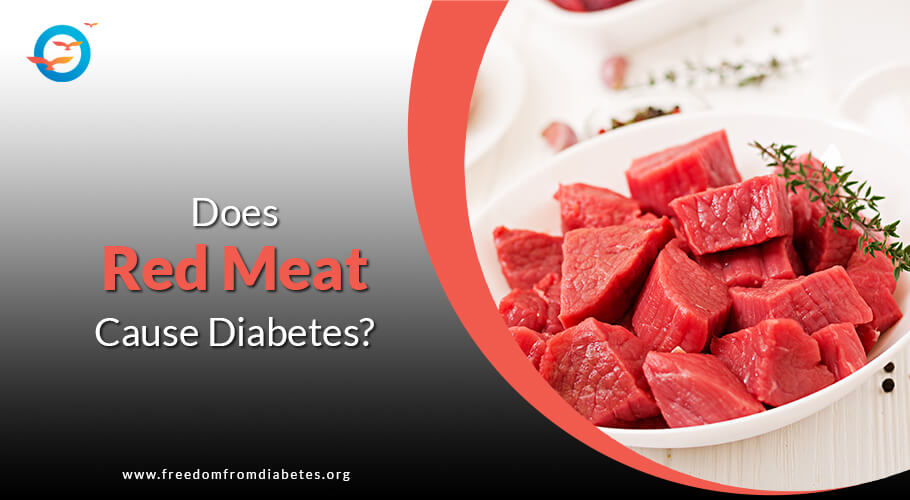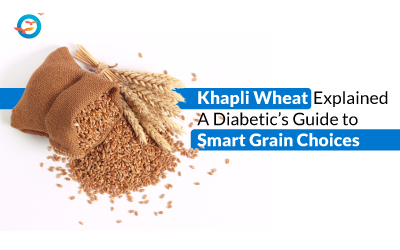Does Red Meat Cause Diabetes?

Diet is a critical component in both the cause and reversal of diabetes. And of all the foods you eat that can increase your risk of diabetes, perhaps none are as harmful as red meat. There have been several studies that link consumption of red meat and processed meat with increased risk of type 2 diabetes.
There are several types of red meat including;
- Pork
- Beef
- Mutton
Meats produced through methods like salting, smoking, or canning are described as processed meats. These include popular items like bacon, ham, sausages, and corned beef, among others.
What makes red meat dangerous to diabetics?
Red meat is high in a substance known as haem-iron, which when exposed to high-heat cooking is known to lead to the production of dangerous compounds that increase the risk of diabetes and certain cancers.
Meat eaters tend to point to red meat’s high protein content as a reason to consume it. But, while our body does need protein to build and repair muscle, tissues, bones, and make hormones, enzymes, etc., there are many cleaner sources of protein than red and processed meat.
Another factor that would prima facie seem to be in favor of consuming red meat—and one much-touted by keto diet aficionados—is that meat doesn’t naturally contain carbs. But what meat lacks in carbs it more than makes up for in saturated fat, which is directly linked to a higher risk of insulin resistance, and associated diseases.
Cooking methods further raise the risk of contracting type 2 diabetes through meat consumption. Cooking methods that use open flame/high-temperature methods, viz: barbecuing, broiling, grilling, and roasting are all linked to a higher risk of type 2 diabetes (T2D). In fact, the risk from cooking at high heat is higher than the quantity of meat consumed.
One possible reason for this is that when meat is cooked at high temperatures it forms a compound known as heterocyclic amines (HCAs), which have been linked to T2D, and polycyclic aromatic hydrocarbons (PAHs), which have been linked to a higher risk of cancer in animals by some studies.
Studies suggest that processed red meat is especially harmful. This is possibly due to the high content of preservatives and chemicals, including nitrites and nitrates that are added to improve shelf life and taste but end up harming your organs like the pancreas and liver.
Since the body depends on the pancreas for its insulin, any damage to the pancreas directly impacts insulin production, and the fallout is insulin resistance.
Another factor that should influence decisions to cut our red meat is its higher levels of saturated fats and calories. This has been linked to increased visceral fat (belly fat), and high levels of abdominal fat are known to lead to excess weight, obesity, and insulin resistance. Saturated fat is also high in cholesterol, which increases the risk of atherosclerosis, heart attacks, and strokes.
Meat Substitutes
Dropping red meat doesn’t mean you have to deprive your body of protein, as we said, there are many cleaner sources of protein-rich foods, soy, tofu, legumes, beans, nuts, and seeds are all good protein sources. Mixing them up will give your body the full spectrum of amino acids it needs to build muscle and repair bones and tissue.
FFD’s POV
Freedom from Diabetes firmly advocates the substitution of all animal food sources with plant-based foods. Our research has shown a direct link, not just to diabetes and meat, but even dairy. In addition to fat content, our findings, which have been published in eminent scientific journals, show that milk and milk products contain a compound known as Insulin-like Growth Factors (IGF), which block insulin function and lead to high blood sugar levels.
This is why we firmly advocate dropping all milk and milk products from our participants' diets. You can learn more about the best foods for diabetic blood sugar control from our Facebook and YouTube channels and the blogs on our website. Visit www.freedomfromdiabetes.org for more details.

